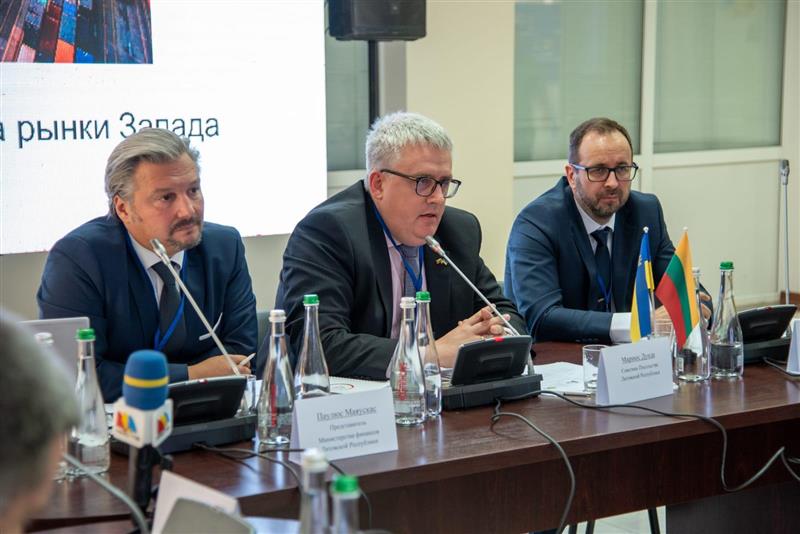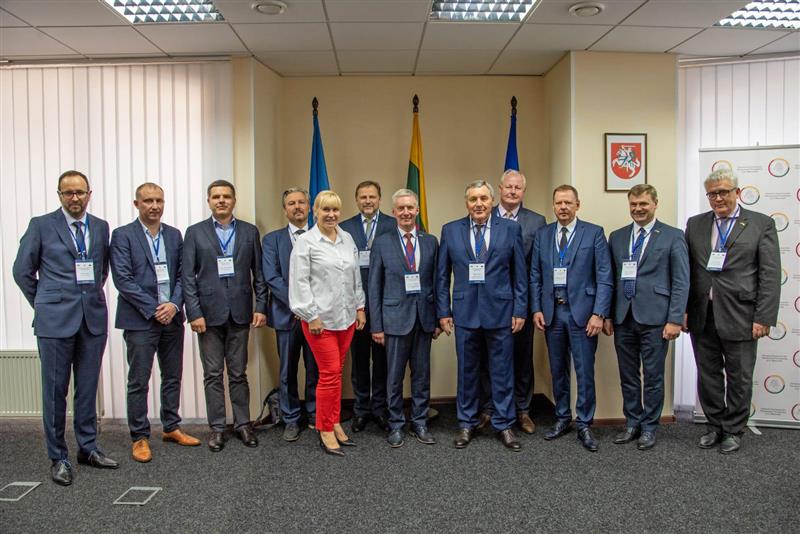EU4PFM project helps Ukraine to counter the shadow economy
“According to various estimates, depending on the methodology, the share of the shadow economy is 30 to 47 percent,” stated Paulius Majauskaus, EU4PFM International Key Expert on tax reform at (the European Union’s Public Finance Management Support Programme for Ukraine) during the first economic Lithuanian-Mykolayiv business forum that took place on September 15th in Mykolayiv city.
Paulius Majauskaus also noted that a public survey commissioned by the EU4PFM changed the stereotypical view on Ukrainian society that was largely loyal to the shadow economy.


According to the survey, the majority of citizens disagreed with the statement that tax fraud is justified and tax evasion is acceptable behavior in Ukraine. However, unfortunately, more than 30% of respondents do not have their own opinion on this issue. This indicates a still high level of tolerance for the country’s shadow economy.
Paulius Majauskaus noted that the work of EU4PFM is aimed at supporting customer-oriented tax administration, which will change the interaction between the state and business for the better.
In addition, an important part of cooperation with EU4PFM’s Ukrainian partners – the Ministry of Finance of Ukraine, the State Tax Service, the Accounting Chamber – is to assist in combating the shadow economy through effective and modern administrative prevention and control measures, integrated risk management and data analysis.
What EU instruments in the fight against the shadow economy are being implemented with the support of the EU4PFM in Ukraine?
First, these are measures that promote voluntary compliance. “As a rule, this means a ‘win-win’ situation, when both the tax administration and taxpayers have a reduction in the administrative burden,” said the expert.
In particular:
• introduction of a customer-oriented approach;
• digital centralized services for taxpayers;
• modernization of the Contact Center as a key point of communication with taxpayers;
• implementation of the “Single Tax Account” initiative to simplify tax payments;
• expanding the functionality of the e-cabinet and increase its user convenience;
• measures to implement a common understanding and application of legislation.
Second, effective preventive and control measures based on risk management and a balanced approach to taxpayers are implemented through the introduction of tools such as:
• development of a comprehensive risk management system;
• implementation of the electronic audit initiative;
• introduction of software electronic cash registers;
• improving control over transfer pricing;
• implementation of OECD initiatives on automatic exchange of information on foreign accounts of individuals;
• review of business processes and implementation of best practices.
To reduce public tolerance to the shadow economy, during the forum, it was noted that the government is actively reforming the tax service and forming the image of the State Tax Service as a European-style service with a high level of trust in society. It is obvious that the state also needs business support in this matter, the forum participants noted.
To recall, the state representatives, the management of local authorities and business self-government, the international expert institutions gathered on September 15 in Mykolayiv for the First economic Lithuanian-Mykolayiv business forum.
H.E. Ambassador of the Republic of Lithuania to Ukraine, Valdemaras Sarapinas, Honorary Consul of the Republic of Lithuania in Mykolayiv, Chairman of the Mykolayiv Regional Organization “Industrialists and Entrepreneurs”, President of the Agrofusion-Ukraine Group of Companies, Serhiy Sypito, Chairman of the Lithuanian-Ukrainian Business Council, Aivaras Karalius, Director General of the Confederation of Lithuanian Industrialists, Richardas Sartatavicius, and others.
Managers of Ukrainian and Lithuanian companies presented opportunities for the development of Ukrainian-Lithuanian economic cooperation and discussed issues related to improving the work and interaction of government and business and ways to solve them.
Let’s implement change together!

